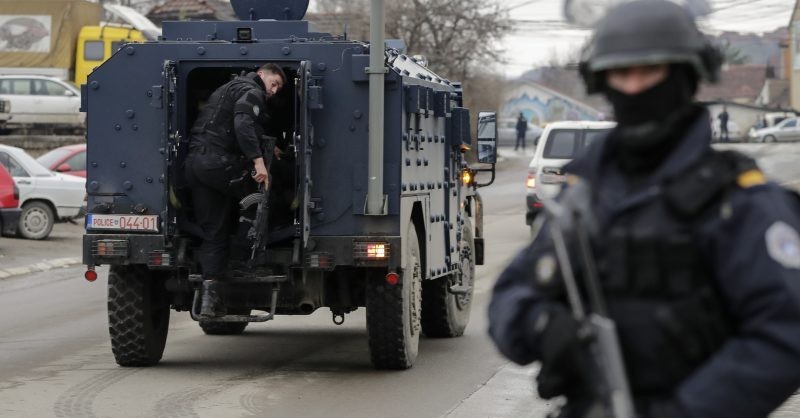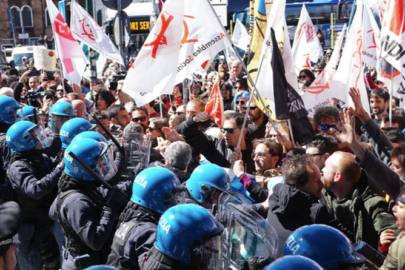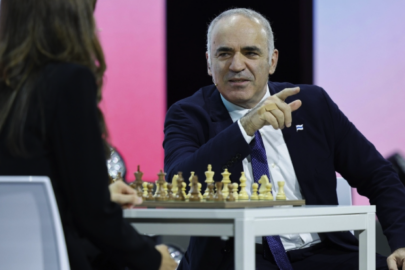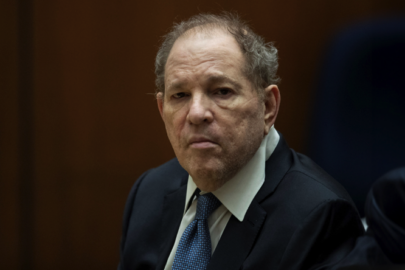Kosovo police yesterday (26 March) arrested a senior Serbian official in the flashpoint town of Mitrovica, raising fresh tensions between the former foes who are trying to relaunch a dialogue. The EU expressed concern.
Marko Djurić, Belgrade’s chief negotiator for Kosovo — a Serbian province that proclaimed independence in 2008 — was arrested after he crossed into the disputed territory and traveled to Mitrovica in defiance of a ban, a police spokesman said.
Footage of Marko Djuric, the head of the Serbian govt’s Office for Kosovo, being taken inside the police HQ in Pristina after he was arrested by Kosovo’s special police in the northern city of Mitrovica.
He was apprehended for entering Kosovo despite a ban on him doing so. pic.twitter.com/FDURKDClSk
— Balkan Insight (@BalkanInsight) March 26, 2018
Kosovo President Hashim Thaçi in a statement called for calm and said Djurić was escorted by police to a “border crossing point between Kosovo and Serbia.” Shortly before 7:00 pm (1900 GMT) Serbian state-run RTS television announced Djurić’s return to Serbia. Serbian President Aleksandar Vucić labeled the arrest an abduction. “All those who have participated in this abduction will be held accountable before Serbian state bodies,” he told reporters in Belgrade. “They beat him … dragged him on the streets of Pristina under boos to complete the humiliation.” EU foreign affairs chief Federica Mogherini said she has called on Thaçi and Vucić and deplored the event.
Called @avucic & @HashimThaciRKS. I deplore what happened today in #Kosovo. #Djuric now free on his way back. Need calm & preserve dialogue.
— Federica Mogherini (@FedericaMog) March 26, 2018
After the arrest, Djurić was taken to a police center in Pristina, a police spokesman told AFP. Kosovo authorities said he had not obtained entry authorization.
Serbian officials visiting Kosovo commonly seek Pristina’s approval before visiting areas with an ethnic Serb population.
Hooded police holding automatic weapons and accompanied by armoured vehicles, were deployed from the Serbian border to Mitrovica to prevent several Serbian officials from entering Kosovo, according to an AFP correspondent.
Nearly 20 years after the 1998-1999 war between Serb forces and Kosovo pro-independence ethnic Albanian guerrillas, Mitrovica remains divided between ethnic Serbs, living north of the Ibar river, and ethnic Albanians, south of it.
International forces are still deployed in the town.
Today Kosovo, which has a population of 1.8 million, is home to some 120,000 ethnic Serbs.
Serious incident
A public round-table in Mitrovica attended by Djurić was aimed at “internal dialogue” over the Kosovo issue, which is key to Belgrade’s bid to join the European Union.
In the hall where it was held a Serbian flag was on display.
Police had to battle their way through the hall where Djurić was attending the meeting, using tear gas to disperse dozens of residents trying to intervene.
He was then taken to the police station in Pristina, where he was dragged by police in front of the cameras and insulted by residents, according to AFP journalists.
Although there have been no serious inter-ethnic incidents in Mitrovica in recent years, the town remains tense.
The fragile situation was illustrated by the murder of moderate Kosovo Serb politician Oliver Ivanović in January.
A probe has failed to shed light on the murder.
Monday’s arrest is the most serious incident since Belgrade sent a train to Kosovo in January 2017 painted in the Serbian flag’s colours with a sign reading “Kosovo is Serbia” in multiple languages.
Pristina labeled it a “provocation”, but Vucić halted it before the border.
The arrest and expulsion of Djurić took place after Vucić and Thaçi met in Brussels on Friday to restart the EU-sponsored talks on normalization of ties, which have been deadlocked for the past two years.
Thaçi said the incident “should not interfere with … the dialogue between the two countries, the efforts for normalization, good neighbourly relations and reconciliation between Kosovo and Serbia.”
About 115 countries have recognized Kosovo’s independence over the past 10 years. However, Serbia and dozens of other states, including its ally Russia haven’t.
The 1998-1999 Kosovo conflict claimed 13,500 lives.
Source: euractiv




































